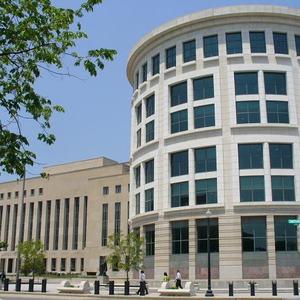US biodiesel interests gear up for court battle over RFS volumes

February 13, 2017
BY Ron Kotrba
In continuation of the ongoing legal dispute over volumes set by the U.S. EPA under the renewable fuel standard (RFS) vs. statutory volumes required by Congress, the National Biodiesel Board filed a petition Feb. 10 asking the U.S. Court of Appeals to review EPA’s final volume standards for 2017 and the biomass-based diesel volume set for 2018.
“This is essentially a continuation of last year's petition,” said Anne Steckel, vice president of federal affairs for the National Biodiesel Board.
Last year, NBB joined several other parties to challenge EPA’s final RFS volumes the agency set for 2014-’16. One of NBB’s arguments is that EPA unjustifiably reduced overall advanced biofuel volumes in the 2014-’16 ruling based on its authority in the cellulosic waiver.
Advertisement
Advertisement
“Congress sought to increase ‘production’ of renewable fuels and could not have intended EPA to base RFS volumes using an analysis so complex that EPA admittedly ‘cannot make reliable predictions,’” NBB argued in a reply brief filed Jan. 30. “EPA ignored Congress’s directives. Its approach has not ‘prioritized’ growth in advanced biofuels, as Congress envisioned. It prioritizes reducing obligated parties’ compliance costs. That approach deserves no deference. EPA eschewed the statute’s language, structure, and goals to give itself broad discretion. It ignored the weight of the evidence in favor of conclusory (and erroneous) statements—hallmarks of arbitrary action.”
Steckel said the new filings deal with issues similar to previous ones, “so this was a needed step to safeguard American biodiesel interests. American biodiesel is delivering growing quantities of advanced biofuels under the RFS. Considering advanced biofuels’ many benefits, and specifically carbon reduction impact, the EPA should be doing more to grow those volumes.”
Advertisement
Advertisement
Oral arguments for the court case pertaining to the 2014-’16 RFS volumes are scheduled to begin April 24, confirmed Jessica Robinson, director of communications at the NBB. “It is typically three to six months after that the court will issue a final decision,” she said.
With the Feb. 10 filing, a court win for the biodiesel industry in the case over 2014-’16 RFS volumes would leave open the possibility to adjust up the 2017-’18 volumes.
Related Stories
California’s new specified source feedstock attestation requirement: A critical new compliance step for renewable fuel producers
As of July 2025, California’s SCFS requires renewable fuel producers using specified source feedstocks to secure attestation letters reaching back to the point of origin. This marks a significant shift in compliance expectations.
The public comment period on the U.S. EPA’s proposed rule to set 2026 and 2027 RFS RVOs and revise RFS regulations closed Aug. 8. Biofuel groups have largely expressed support for the proposal but also outlined several ways to improve the rulemaking.
The U.S. renewable fuels industry on Aug. 8 celebrated the 20th anniversary of the Renewable Fuel Standard. Federal lawmakers also marked the occasion with resolutions introduced in the House and Senate earlier this month.
Iowa farmers have a new market opportunity for their 2025 soybean crop. Landus is expanding its Clean Fuel Regulation initiative, made possible by recent policy changes expected to increase Canada's demand for liquid biofuel.
Klobuchar, Moran introduce bipartisan legislation to support biorefineries, renewable chemicals, and biomanufacturing
Sens. Amy Klobuchar, D-Minn., and Jerry Moran, R-Kan., on July 31 announced the introduction of the Ag BIO Act. The legislation aims to update the USDA’s loan guarantee program to better support biorefining projects.
Upcoming Events










